The Blessed Peaks
A Beacon for the Faithful
Rising like jagged teeth from the southern reaches of the Stethurst Highlands, the Blessed Peaks stood as a testament to both the raw beauty and unforgiving nature of Glainia. Shrouded in an ethereal mist and guarded by capricious spirits, these towering summits had long been a site of pilgrimage for those seeking spiritual enlightenment and communion with the divine. Yet, the path to the peaks was fraught with peril, demanding both physical prowess and unwavering faith from those who dared to tread it.
The treacherous ascent through narrow passes, slippery slopes, and sudden storms claimed many a life, leaving behind only whispers of despair carried on the wind. Those who survived the climb often spoke of the disorienting mist that played tricks on the senses, conjuring illusions and whispering doubts into the hearts of even the most steadfast pilgrims. Yet, for those who persevered, the reward was a breathtaking vista of snow-capped peaks, a sanctuary where the veil between the mortal and divine realms seemed to thin.
Nestled within these peaks lay the Ember Sanctum, a sacred temple dedicated to Temus, the dwarven god of fire and the forge. Its ancient walls echoed with the prayers of countless pilgrims, their voices mingling with the crackling flames of the eternal forge. But the path to the sanctum was not easily won, for it was said that only those who proved their worthiness through trials of faith and endurance could gain access to its hallowed halls.
The mist clings to the peaks like a shroud, obscuring the path and chilling my bones. The wind howls like a banshee, its icy fingers clawing at my cloak. Yet, I press on, my heart filled with the thrill of exploration. They say no one has crossed these mountains in decades, but I am determined to prove them wrong. If legends are true, riches and wonders await those brave enough to conquer these peaks. The journey has been arduous, filled with treacherous climbs and unsettling encounters with the spirits of the mountain. But I will not be deterred. For I seek not only the treasures that may lie hidden amongst these peaks but also the glory of being the first to conquer this treacherous pass.
Geography
The Blessed Peaks, a rugged mountain pass within the Stethurst Highlands, were a natural barrier and a pathway, a testament to both the beauty and brutality of Glainia. The terrain was a steep climb, the path winding through narrow canyons and treacherous ledges. Snow capped the highest peaks, while lower slopes were carpeted with hardy alpine flora. Views from the pass were breathtaking, a panorama of forested valleys and distant plains stretching to the horizon.
Ecosystem
The ecosystem of the Blessed Peaks was a harsh one, defined by extremes of temperature and altitude. Hardy mountain goats and sure-footed bighorn sheep navigated the rocky slopes, while birds of prey soared on the updrafts. Lower elevations hosted coniferous forests, where wolves and bears roamed. The Silverflow River, originating from the glacial melt, provided a vital source of fresh water for the flora and fauna of the region.
Ecosystem Cycles
The Blessed Peaks experienced distinct seasonal shifts. In winter, snow blanketed the mountains, forcing many animals to migrate to lower elevations or hibernate. Spring brought a burst of life as the snow melted, wildflowers bloomed, and migratory birds returned. Summer was a time of relative abundance, with lush vegetation and active wildlife. Autumn saw a return to harsher conditions as temperatures dropped and the first snows began to fall.
Localized Phenomena
The Peaks were known for their unpredictable weather patterns. Dense fog often rolled in, obscuring the path and creating treacherous conditions. Sudden blizzards could strike even in the warmer months, and avalanches were an ever-present danger. The interaction of the mineral-rich rock with atmospheric energies sometimes resulted in strange electrical phenomena, with crackling bolts of lightning dancing across the peaks.
Climate
The climate of the Blessed Peaks was alpine, characterized by cold temperatures and high winds. Summers were short and cool, while winters were long and harsh. Precipitation fell primarily as snow, although rain was common in the lower elevations. The temperature could vary drastically within a single day, and travelers had to be prepared for any weather condition.
Fauna & Flora
The flora of the Blessed Peaks was dominated by hardy alpine plants such as lichens, mosses, and wildflowers, their vibrant colors defying the harsh environment. Coniferous trees like pine and fir clung to the lower slopes, their roots anchoring them against the relentless winds. However, it was the fauna that truly set the Blessed Peaks apart. While mountain goats and bighorn sheep were a common sight, more elusive creatures roamed the hidden valleys and mist-shrouded peaks.
Massive woolly mammoths, relics of a bygone era, lumbered through the snow-covered highlands, their thunderous footsteps echoing through the mountains. High above, the skies were patrolled by majestic wyverns, their leathery wings carrying them through the updrafts with effortless grace. It was whispered that even more fantastical creatures, such as griffons and manticores, made their homes in the most remote corners of the Peaks, their existence a source of both wonder and terror for those who dared to venture into the unknown.
Natural Resources
The Blessed Peaks were rich in mineral resources, including iron, copper, and silver. The forests provided timber for construction and fuel. The Silverflow River was a source of freshwater and fish.
History
The Blessed Peaks held spiritual significance for many cultures in Glainia. The dwarves, in particular, revered the mountains as the dwelling place of their god, Temus. They built a temple, the Ember Sanctum, in the heart of the Peaks, and it became a site of pilgrimage for dwarves and other races alike.
Tourism
The Blessed Peaks attracted a variety of visitors, including devout pilgrims seeking spiritual enlightenment, adventurous travelers eager to test their skills against the challenging terrain, and scholars interested in the region's unique geological formations and diverse ecosystems. Accommodations were limited, with most travelers staying at the Ember Sanctum or camping in designated areas.
Type
Mountain Pass
Location under
Whispers in the Wind
Legends speak of a time when ice giants ruled the Blessed Peaks, their towering forms casting long shadows across the land. They built fortresses of ice and stone, their guttural voices echoing through the valleys. It is said that their magic infused the very air, leaving a lingering chill that persists to this day. Though the giants are long gone, their presence is still felt in the icy winds that howl through the peaks and the strange formations of ice that sometimes appear on the highest summits. Some even whisper of sightings of ghostly figures in the mist, their forms reminiscent of the giants of old. Perhaps their spirits still linger, watching over the mountains they once called home.Remove these ads. Join the Worldbuilders Guild

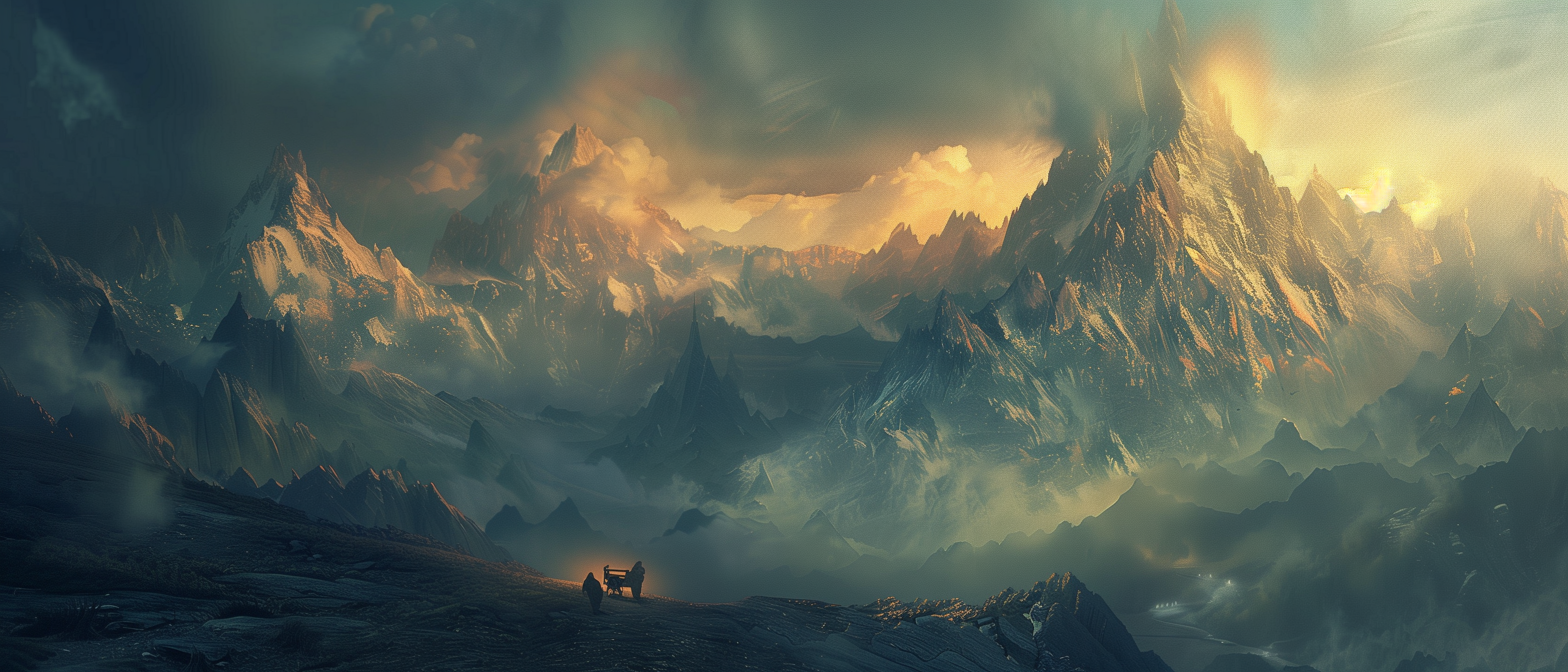
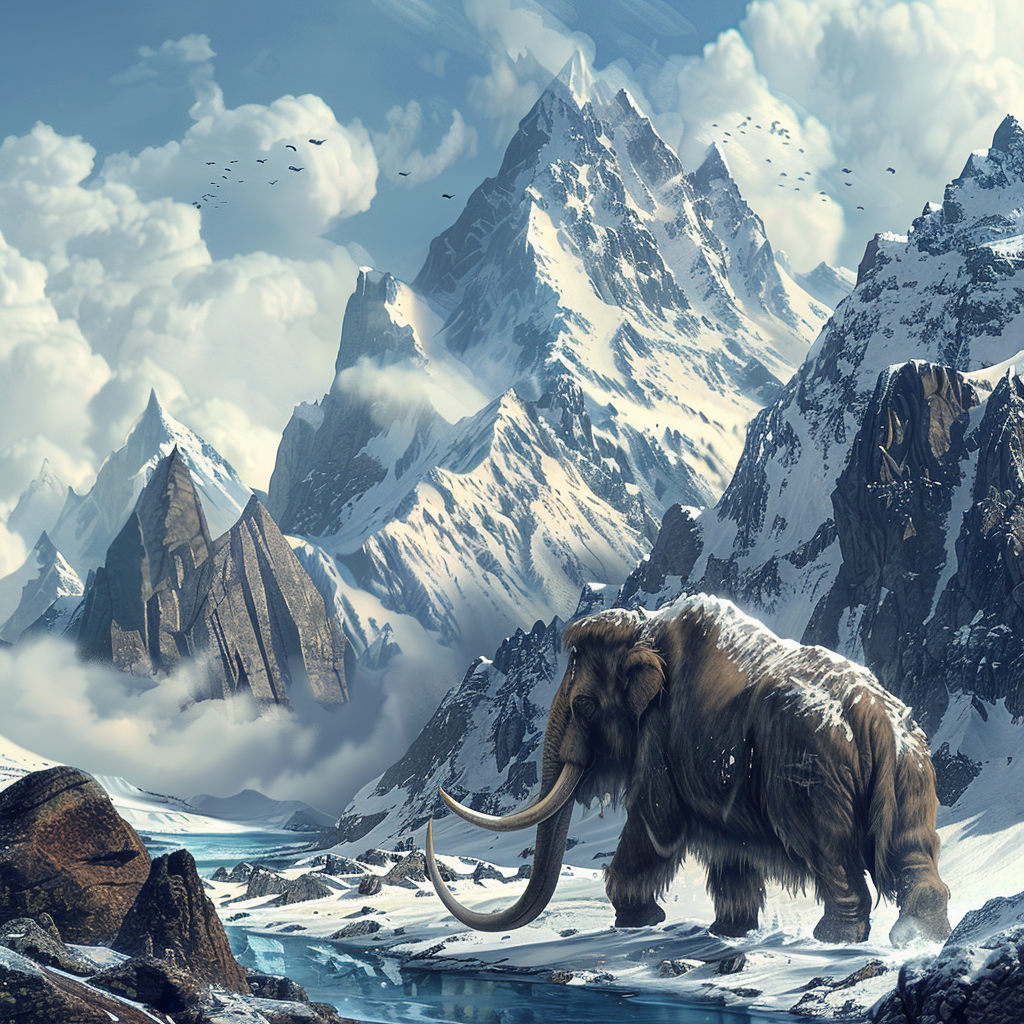

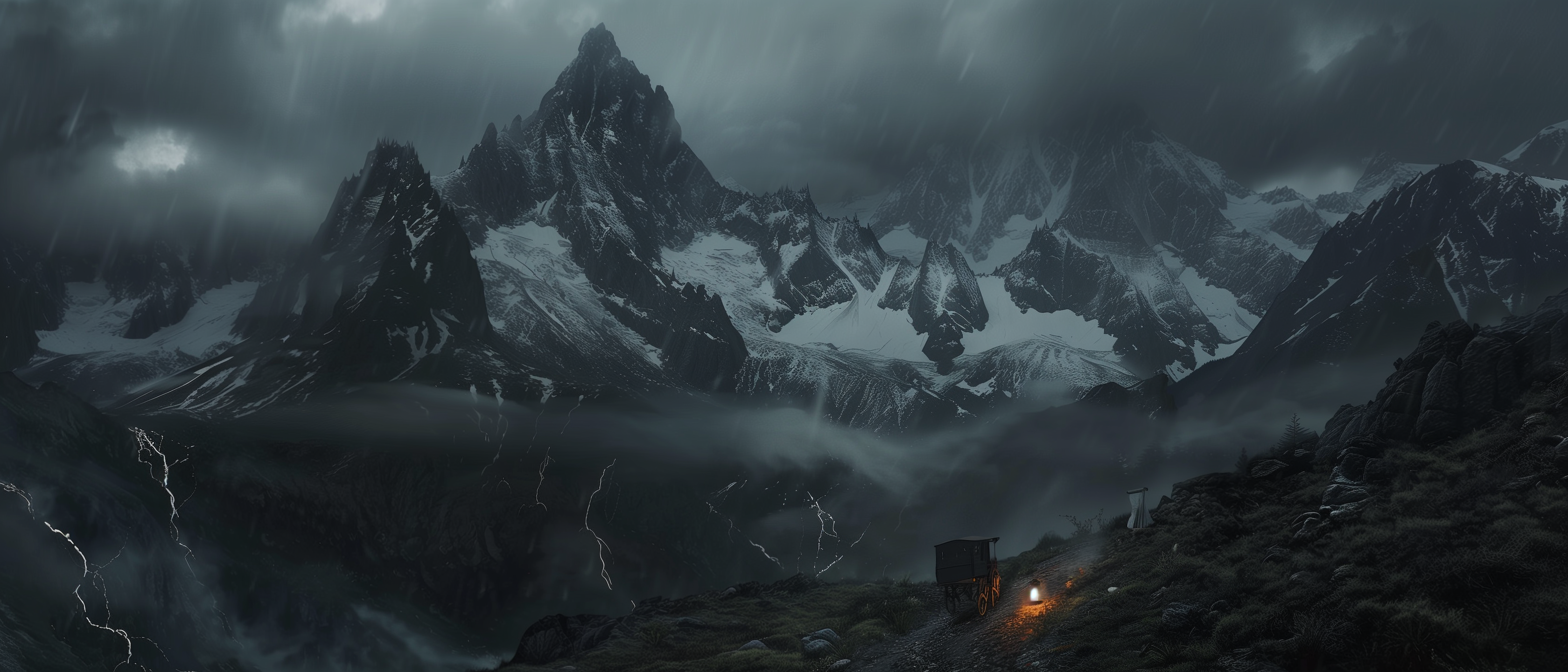
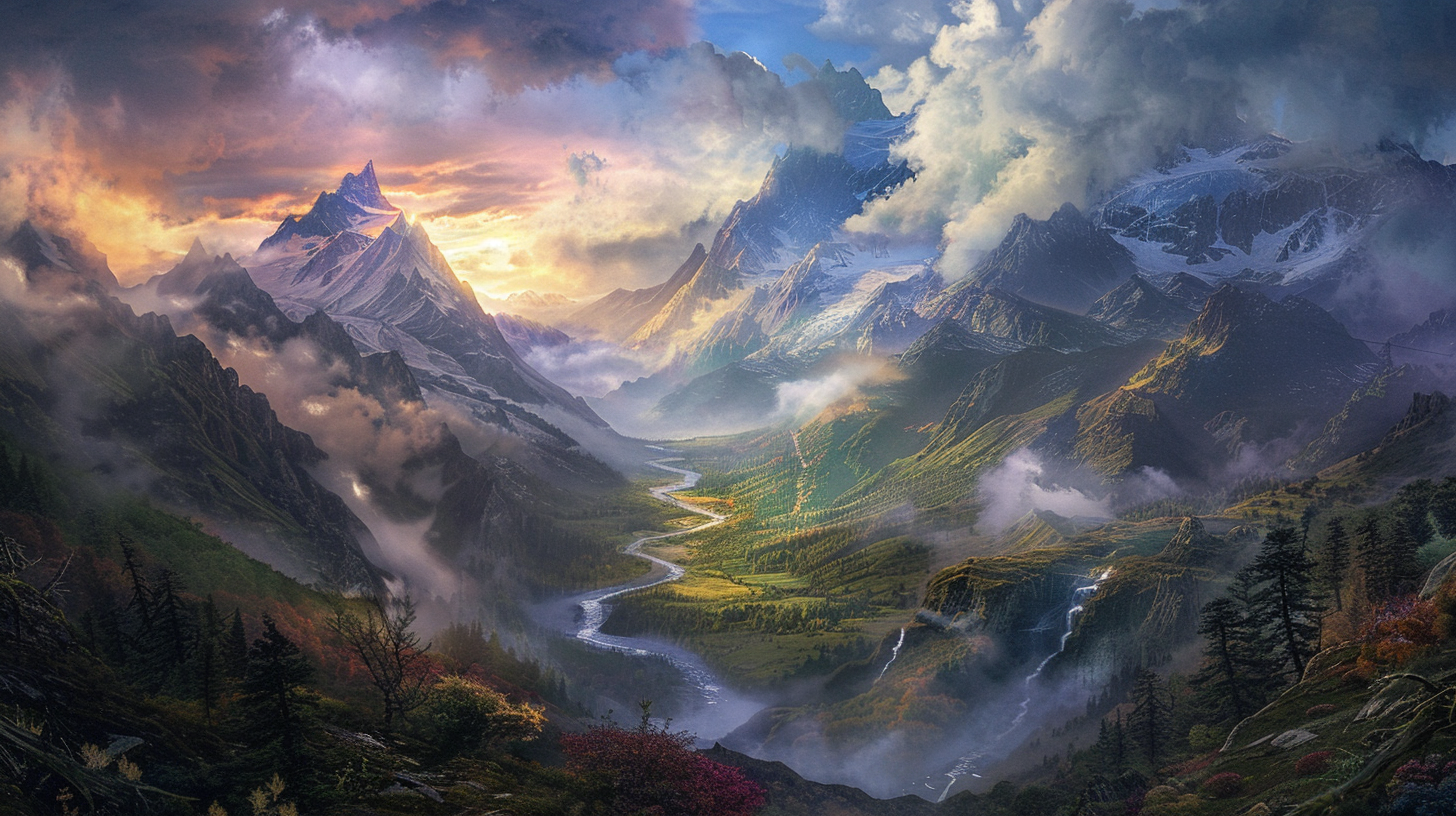
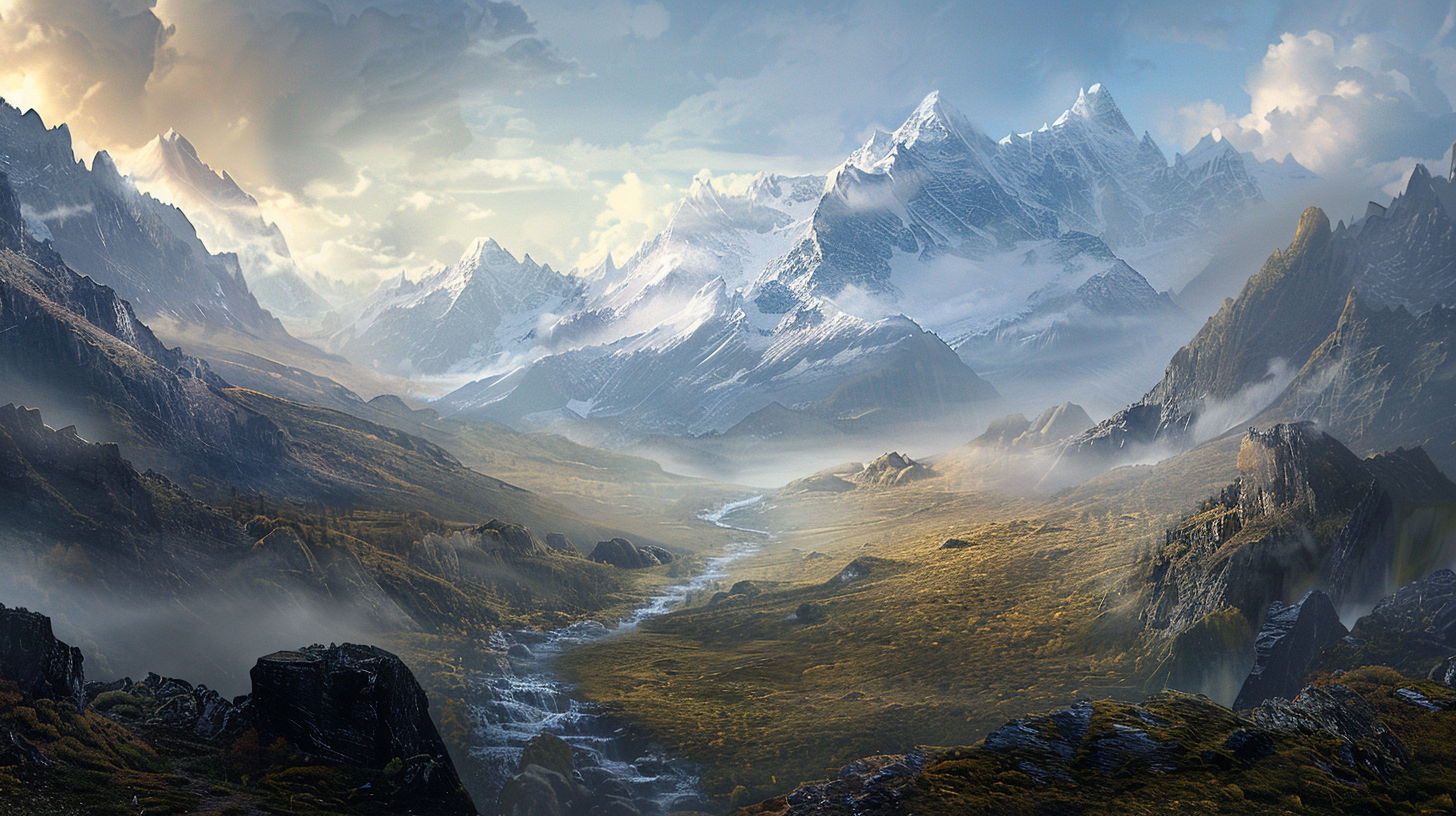
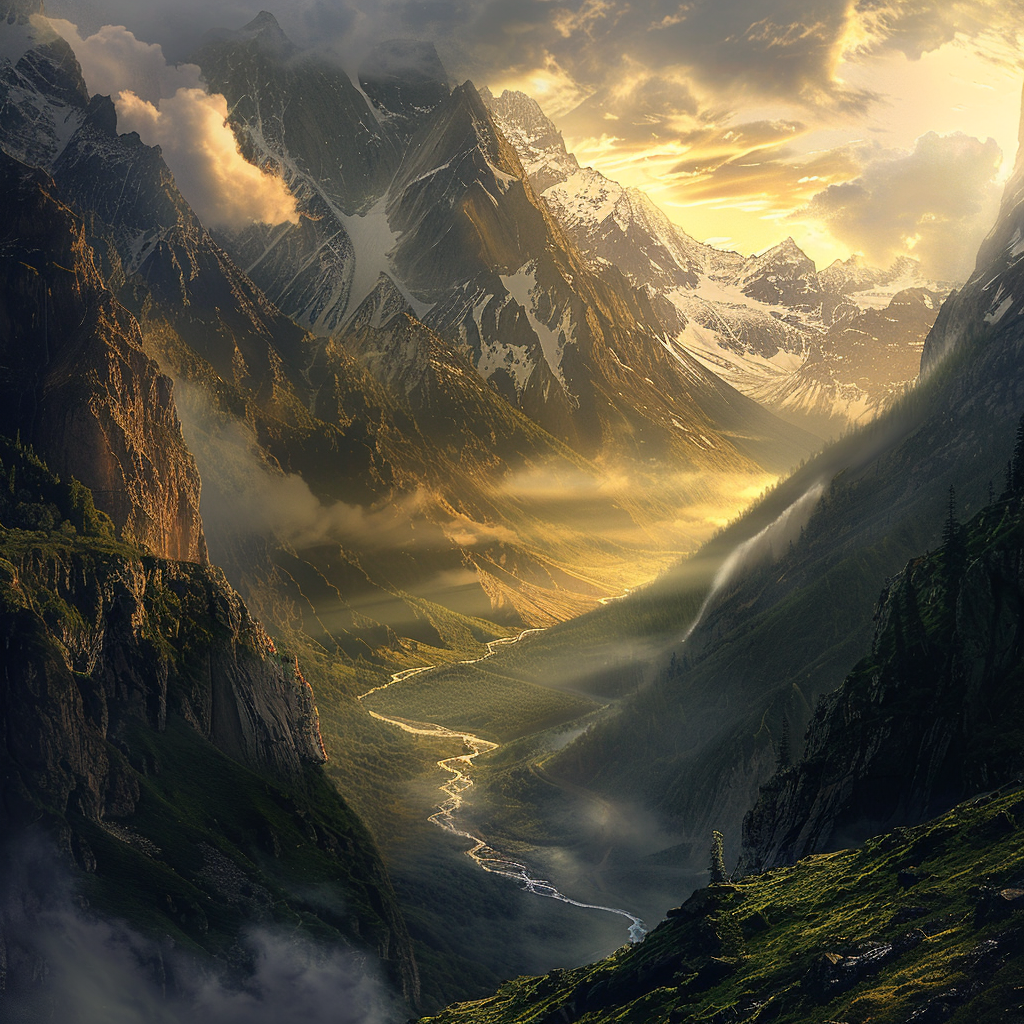






Comments